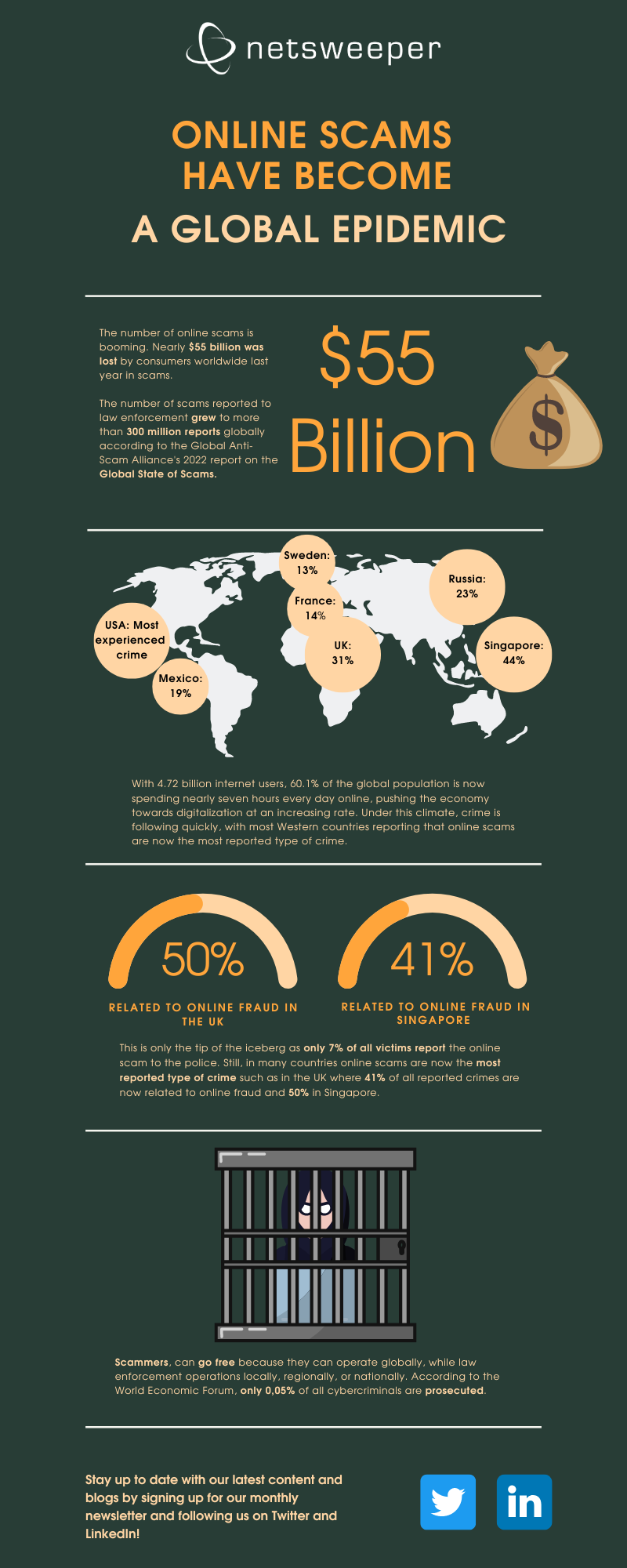In today’s interconnected world, where the internet has become an integral part of our daily lives, scams have taken on a new and alarming dimension. From fraudulent emails and phishing attacks to identity theft and online fraud, the digital age has provided scammers with unprecedented opportunities to exploit unsuspecting individuals and organizations.
The Evolving Landscape of Digital Scams
Scammers have adapted to the digital landscape, constantly refining their techniques to trick people into falling for their traps. Phishing emails that mimic legitimate organizations, fake websites that imitate popular online platforms, and social engineering tactics that exploit human vulnerabilities have become increasingly sophisticated. As technology advances, scammers are quick to exploit new trends, such as cryptocurrency scams and deepfake technology, further blurring the line between reality and deception.
The consequences of falling victim to digital scams can be devastating. Individuals may suffer financial losses, identity theft, reputational damage, and emotional distress. Businesses face financial and operational setbacks, loss of customer trust, and compromised data security. Moreover, scams erode public trust in digital platforms and hinder the growth of e-commerce, online services, and other digital advancements. It is therefore crucial to recognize the widespread impact of scams and proactively combat them to protect ourselves and our digital ecosystem.

Combatting Scams: A Collective Responsibility
Fighting digital scams requires a multi-faceted approach that involves individuals, businesses, governments, and technology providers working together. Education and awareness play a vital role, as individuals need to be well-informed about common scams and learn how to identify and report suspicious activities. Cybersecurity measures, such as strong passwords, multi-factor authentication, and regular software updates, act as essential safeguards against scams.
Businesses and online platforms must prioritize security measures to protect their customers and users. Employing robust authentication processes, encrypting sensitive data, and implementing advanced fraud detection systems are critical steps in combatting scams. Governments and regulatory bodies also have a crucial role to play in enacting legislation, fostering international cooperation, and supporting cybersecurity initiatives.
Technological advancements can aid in combating scams as well. Artificial intelligence and machine learning algorithms can be employed to detect and mitigate fraudulent activities, while blockchain technology can enhance transparency and security in digital transactions. Collaboration between technology experts and law enforcement agencies can help stay one step ahead of scammers and disrupt their operations effectively.
GASA and Netsweeper Working Together
The Global Anti-Scam Alliance (GASA) and Netsweeper, have partnered in the fight against scams. Through our collaboration, we are leveraging our expertise and resources to combat the ever-evolving tactics employed by scammers and protect individuals, businesses, and communities from falling victim to online fraud.
- Information Sharing and Analysis: GASA and Netsweeper facilitate the exchange of information and analysis on emerging scam techniques, trends, and indicators. By pooling our knowledge and insights, we can stay ahead of scammers, identify new patterns, and develop proactive measures to mitigate the impact of scams.
- Advanced Scam Detection Systems: Netsweeper’s cutting-edge technology and expertise in cybersecurity complement GASA’s efforts to develop robust scam detection systems. Together, we work to identify and block malicious websites, suspicious email domains, and other scam-related online activities.
- Awareness Campaigns and Education: GASA and Netsweeper collaborate on raising public awareness about scams and educating individuals about common tactics used by scammers. Through joint initiatives, we empower individuals with knowledge and best practices to identify and avoid scams.
- Policy Advocacy and Legislation: Together, we advocate for policy reforms and legislation that address the challenges posed by digital scams. We work closely with governments, regulatory bodies, and law enforcement agencies to strengthen legal frameworks, enhance international cooperation, and allocate resources to combat scams effectively.
- Collaborative Research and Innovation: GASA and Netsweeper engage in collaborative research and innovation initiatives to stay at the forefront of scam detection and prevention. By investing in research and development, we aim to develop new technologies, algorithms, and tools that can proactively identify and counter emerging scam tactics.
As the digital age continues to evolve, the battle against scams becomes increasingly important. By understanding the evolving landscape of digital scams and embracing a collective responsibility to combat them, we can protect ourselves, our businesses, and our digital ecosystem from the devastating consequences of fraud. It is only through proactive measures, such as education, advanced security measures, and collaboration, that we can create a safer and more trustworthy online frontier for all. Together, we can build a resilient digital landscape that safeguards our interests and ensures a secure future for generations to come.
For more related content on scams, check out our latest podcast The Rise of Digital Deception: How to Safeguard Yourself in the Digital Age and the following blogs:
